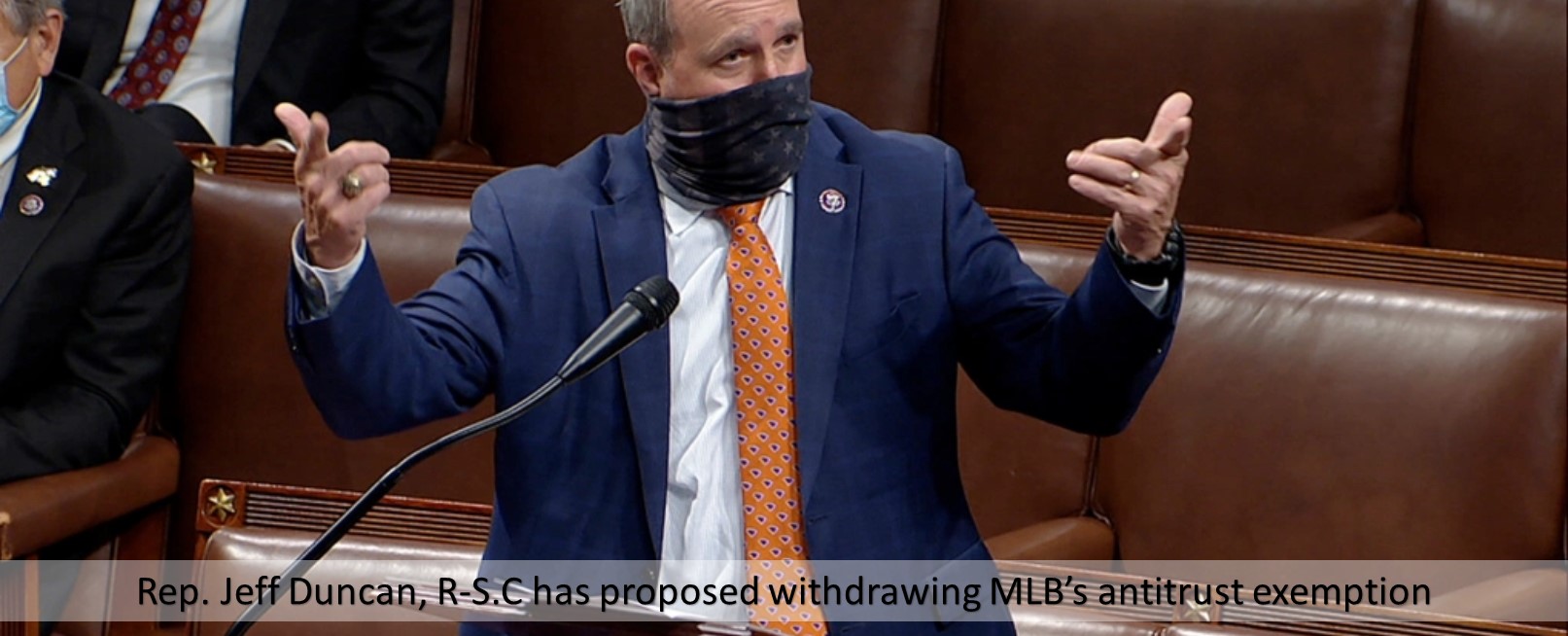Conservatives Embrace Their Own 'Wokeness' With Attacks on Private Businesses
Remember when Republicans believed private businesses had a right to exercise free speech?

SACRAMENTO – This week’s column set out to highlight the expected Democratic attack on free speech and free enterprise. I had been following news reports that U.S. Rep. David Cicilline of Rhode Island, the chairman of a House anti-trust subcommittee, is about to introduce 10 bills that take aim at the nation’s big technology companies.
For instance, the preamble to the Cicilline panel’s 449-page report, released in October, complained that tech firms “that once were scrappy, underdog startups that challenged the status quo have become the kinds of monopolies we last saw in the era of oil barons and railroad tycoons.”
One should expect such overheated rhetoric – combined with a misunderstanding about the nature of monopolies – from one of Congress’ most left-wing members. We also shouldn’t feign surprise that U.S. Sen. Elizabeth Warren, the progressive icon and former presidential candidate, recently got into a snarky Twitter debate with Amazon.
“You make the tax laws @SenWarren; we just follow them,” the company tweeted, in response to her effort to close tax “loopholes.” In response, the senator blasted the company’s “armies of lawyers and lobbyists” – and vowed to “break up Big Tech so you’re not powerful enough to heckle senators with snotty tweets.”
That’s an outrageous threat to use federal muscle to commandeer private companies and squelch their ability to communicate with elected officials. Warren, Cicilline and other Democrats now call for an end to the Communications Decency Act’s Section 230, which protects tech platforms such as Facebook from lawsuits over comments made by users.
I was appalled about these threats that newly empowered Democrats pose to private industry, but then I looked at what the GOP had to say. Instead of standing up for free enterprise and other long-held GOP principles, leading conservatives have been trying to outbid their progressive colleagues in making overheated attacks on “Big Tech.” Given the hypocrisy here, the GOP attacks may be worse than what progressives are doing.
Last week’s political news centered on Georgia, where the GOP governor signed a package of election “reforms” that some mainstream media outlets depict as “Jim Crow 2.0”. Those narratives do a disservice to the African Americans that Jim Crow laws actually victimized, but the legislation – a mix of good, bad and awful – emanates from Donald Trump’s baseless allegations that election fraud robbed him of a second term.
A number of private executives, in the tech sector and old-line industries, criticized the new law. For instance, Major League Baseball responded by moving the All-Star Game out of Atlanta. Atlanta-based Delta Airlines and Coca-Cola criticized the legislation. Coke’s CEO, for instance, told CNBC that the law “does not promote principles we have stood for in Georgia around broad access to voting, around voter convenience, about ensuring election integrity.”
Republican officials, who have created a cottage industry out of blasting progressives for their cancel-culture habit of boycotting and shaming people who say and do things they don’t like, went into full cancel-culture mode and railed against corporations. The former president championed a boycott of Coca Cola in a zany press releases. One GOP lawmaker introduced a bill to strip Major League Baseball of its antitrust exemption, which is the type of thing one would expect from Warren.
Senate GOP Leader Mitch McConnell, who has never shied away from accepting corporate donations that advance his agenda, used the Georgia fracas to issue his own warnings to corporate America. “Our private sector must stop taking cues from the Outrage-Industrial Complex,” he said, noting that, “corporations will invite serious consequences if they become a vehicle for far-left mobs to hijack our country from outside the constitutional order.”
As I understand it, our constitutional order is based on the idea that American citizens – including corporate executives – have every right to express their opinions on political issues even if leading senators don’t like the positions they take. That Constitution allows businesses to operate wherever they choose – and do so without threats of from federal officials more interested in fighting culture wars than protecting our freedoms.
In other news, conservatives applauded Supreme Court Justice Clarence Thomas, who embraced the notion that feds should treat tech firms like public utilities rather than private companies. Meanwhile, two GOP members of Congress recently penned an op-ed in the Hill that sounds like something from Nanny State Democrats.
Reps. Gus Bilirakis of Florida and Bob Latta of Ohio argued for more speech regulation because of online bullying. “There is bipartisan agreement that the Big Tech industry is failing to protect Americans, especially our children,” they wrote. Well, if it’s for the children, why should anyone complain?
The two representatives are correct in one thing. This abuse of government to micromanage private businesses and limit free speech certainly is bipartisan. Now that Republicans have embraced the same approach as Democrats, who is left to bloviate about the need for limited government, free enterprise and personal responsibility?
Steven Greenhut is Western region director for the R Street Institute and a member of the Southern California News Group editorial board. Write to him at sgreenhut@rstreet.org.
